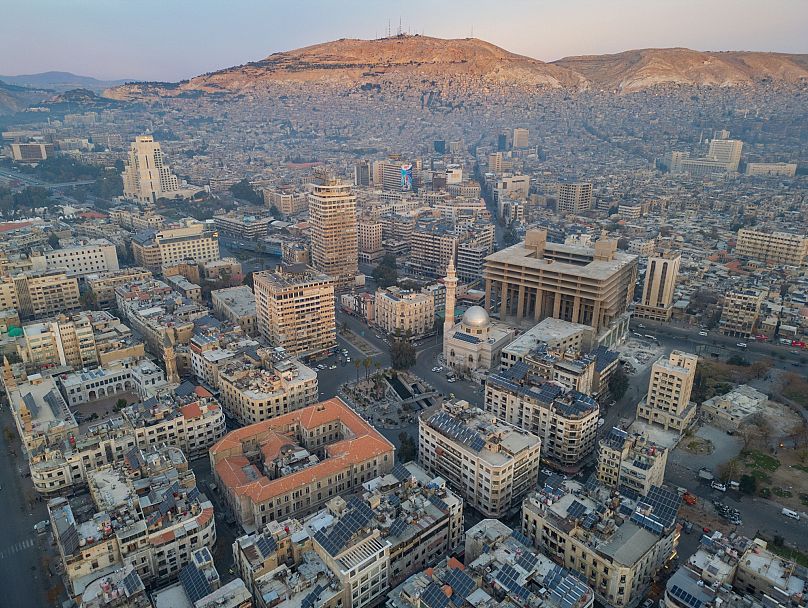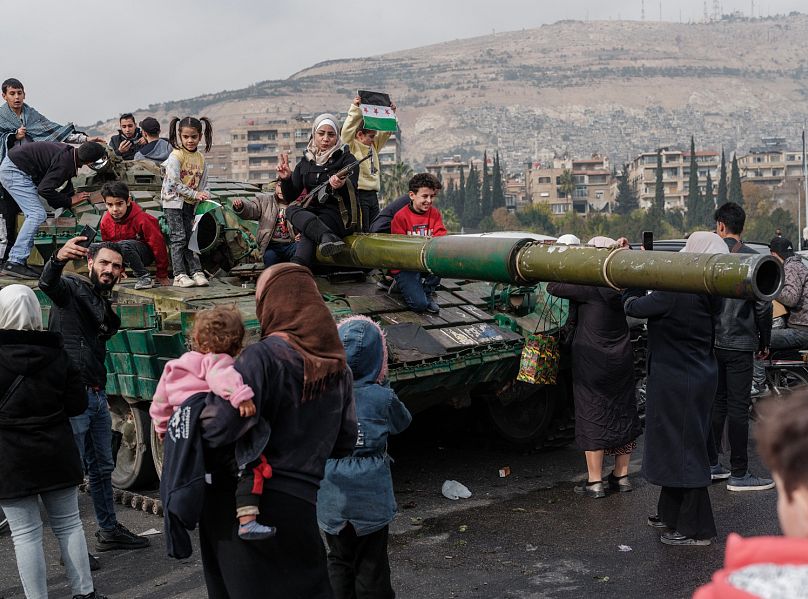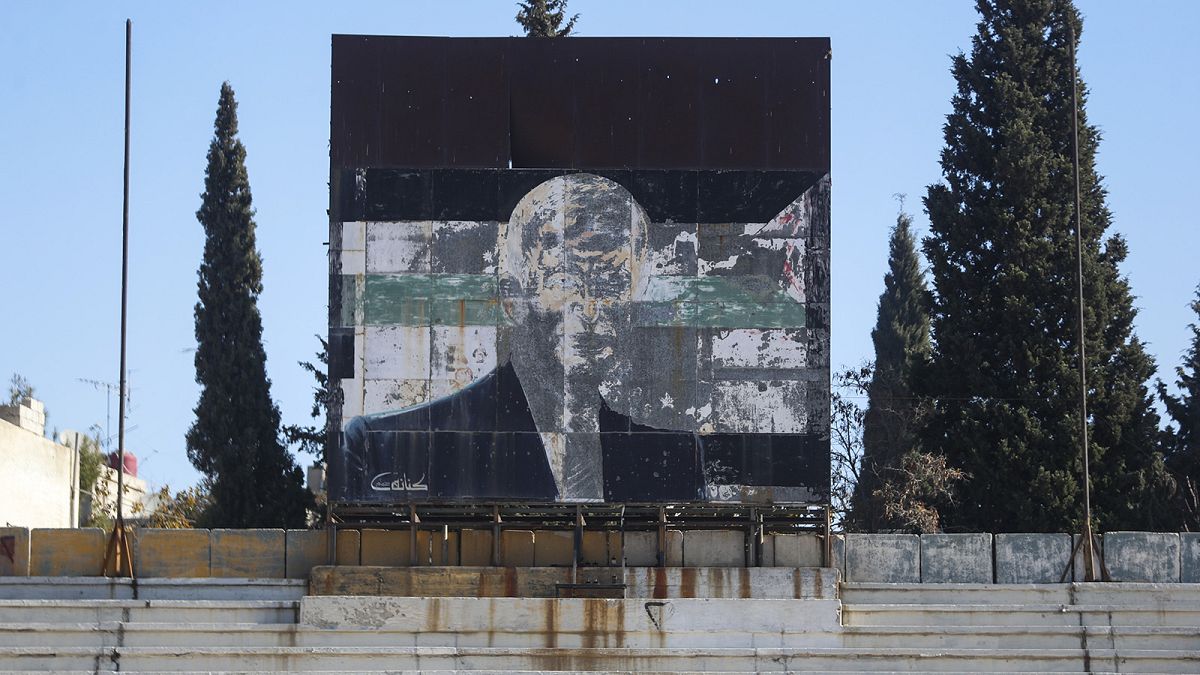As thousands celebrate the ousting of President Bashar Al-Assad in Umayyad Square in central Damascus every day, many Syrian Alawites say concerns over the future of their country make them remain cautious, if not outright anxious.
After Al-Assad fled to Russia on 8 December following a lightning military operation led by the rebels headquartered in the northern province of Idlib that took them all the way to the Syrian capital, a brutal civil war that’s lasted for over 13 years came to an end.
But Ahmed*, a middle-aged receptionist, fears this could be the beginning of a new term of oppression for his family.
“We are seeing videos from Latakia, where the HTS is rounding people up,” he says, referring to the militant group Hayat Tahrir Al-Sham, led by Ahmed al-Sharaa.
“My wife is crying every day and wants to leave,” he says, whispering.
HTS, which at formerly espoused a global jihadist strategy, is designated as a terrorist organisation by European countries and the US alike. Al-Sharaa, aka Abu Mohammad al-Jolani, is a Sunni Muslim with past ties to al-Qaeda, and its Syrian satellite, Jabhat Al-Nusra.
In the past, there was even a $10-million (€9.6m) bounty on any information that could lead to al-Sharaa.

But recently, the US, the UK, France, Turkey, and others have all lined up to make high-level official contact with the group.
Since al-Assad’s fall, Jolani has started making statements in civilian clothing and even shortened his beard, a move largely believed to be a signal of his more moderate beliefs — but this hasn’t really helped Ahmed and his family let go of their worries.
Ahmed says his anxiety over former jihadis now doesn’t mean that he prefers al-Assad, under whose rule he and his compatriots suffered in poverty while tens of thousands of people disappeared, hundreds of thousands were killed, and millions of people became refugees across the world.
“But they don’t look anything like us,” he says with concern, showing the headshots of the transition cabinet the HTS set up.
Idlib, where the HTS is based and has ruled since 2017, portrays a very conservative way of life, where most women cover their hair, hands and sometimes their faces from an early age and where most males have long beards.

To an outside observer, some of it might be reminiscent of places ruled by other religious extremists: In August, the Syrian Salvation Government, HTS’ executive brand, imposed gender segregation in schools across Idlib.
The policy foresaw “distancing from [fashion] trends that are different to our religion’s teachings and our traditions” and the enforcement of “Sharia-compliant attire”.
Sharia courts exist across the province, according to the Syrian Observatory For Human Rights NGO.
The transitional government set to rule the entire country and led by the interim Prime Minister Mohammed al-Bashir, includes temporary ministers of interior, economy, health and judiciary, among others, who are expected to hold their positions until March, according to the HTS.
The entire interim cabinet is made up of Sunni men. Yet Syria, a heartland of countless civilisations, is much more diverse than that.
While a majority of the country’s population of 24 million is made up of Sunnis, between 10-13% are Alawites, a branch of Islam and the largest minority group in Syria, which is also home to Kurds, Christians, Druze, and others.
Bashar al-Assad and his father, former President Hafez al-Assad, are themselves Alawites from Latakia and were known to have installed people from their ethnic group to high-level positions in the military and government since the 1970s, the beginning of their dynasty.
Yet Syria’s ordinary Alawites, mainly living in the coastal provinces of Latakia and Tartus, but also a significant number residing in Damascus and Homs, were not favoured under al-Assad in terms of their freedoms, one young Syrian says.
- Syria’s Kurds fearful of the future after Islamist rebels seized power
“It was worse for me under al-Assad,” Hussein*, a 21-year-old engineering student, explains, standing in front of a small market dotting a small road in Mezzah 86, a neighbourhood of Damascus where many Alawites reside.
“I wasn’t happy with al-Assad, but if I said that, I would be (considered) a traitor. So, double bad for me.”
Now, looking ahead, he says he would like to believe the promises made by the HTS since 8 December, including to protect his rights as a minority and not to go from one oppression to the other.
“No one has the right to erase another group. These sects have coexisted in this region for hundreds of years, and no one has the right to eliminate them,” al-Sharaa said in a television interview following the rebels’ victory.
On Wednesday, he promised, too, that Syria will not become “Afghanistan” when it comes to girls’ education.
These promises are important but need to be watched very closely, says Adam Coogle, deputy director of the Middle East-North Africa division at Human Rights Watch.
“Syria’s transitional authorities should protect the rights of all Syrians equally and make clear that acts of revenge outside the rule of law will not be tolerated,” he urges.
Meanwhile, reports of thousands of Alawite soldiers being kept in HTS-held prisons continue to circulate, though Euronews cannot independently verify these claims.
Turkish President Recep Tayyip Erdoğan’s Justice and Development Party or AKP, the political actor with good relations with the HTS, has underlined the need for this to be a model that’s “respectful of freedom of faith”.
In an interview given to local media recently, Ömer Çelik, the party’s spokesman, said, “Sunnis will respect Shias, Shias will respect Sunnis … A model where all ethnic and religious groups live together. We say, ‘Syria belongs to Syrians’.”
He also urged: “If there is no inclusive governance model, unfortunately, gains are lost and bigger conflicts arise. There needs to be a model of common will.”
Last Thursday, Syria’s new government froze the constitution and the parliament for a period of three months.
At the moment, it’s not yet clear whether a new Syria will have a civil constitution that is equal to all people from different backgrounds.
Syrian Alawites who spoke to Euronews all said they would prefer that, and a Syria for all Syrian people.
*The names of Syrians who spoke to Euronews were changed to protect their identities.

